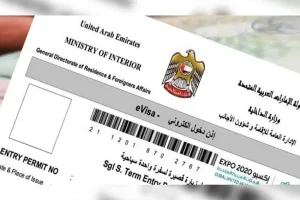Medical tourism describes people travelling abroad to receive medical care. In the past, this typically referred to patients who travelled from lesser-developed countries to larger medical centres in highly developed nations with extensive medical services unavailable at home. Nowadays, there are many medical tourism opportunities available around the world. People can book package holidays with special focus on medical tourism to visit any number of popular tourist destinations. The medical treatments may include orthopedic surgery, cardiology, diagnostics, and pathology, among others.
However, medical tourism has also gained popularity amongst patients opting for a lower cost or no medical insurance coverage in a country where advanced healthcare services are offered for a fraction of the cost in their home country. For instance, a person with an ankle fractured due to accident may be able to have his ankle bandaged and sent to France to have a surgery done at a well renowned hospital for only a few thousand Euro. Alternatively, if the same injury had occurred in the UK, a patient would have to pay up to twelve thousand pounds for the surgery alone, without any insurance coverage. A similar situation arises when the patient is travelling from Canada to Spain for a dental treatment: he may be able to get a reduced fee as he travels between countries that have universal health care coverage. This is because medical tourism includes healthcare services offered not only in each country’s hospitals but also in its local clinics and nursing homes. Therefore, patients should check out the availability of these services before leaving for a medical holiday.
There are several healthcare providers offering services in the medical tourism destination of choice. The accreditation of such organizations enables them to provide quality healthcare services that meet international standards. The term “medical tourism” itself implies the accreditation and certification of the healthcare provider. The organizations offering accreditation are considered legitimate when they have acquired recognition by the relevant regional or national medical societies or regulatory bodies.
Most organizations offering accreditation to healthcare tourism have been operating in the field of medicine for many years. They have dedicated themselves to ensuring the quality of patient care while treating patients from different countries. Their work is backed by strict codes of conducts that have been implemented by their respective medical societies or regulatory bodies. These organizations give their members high quality training and constant supervision. Thus, it is very easy to trust these organizations with the implementation of healthcare regulations.
Another advantage of choosing medical tourism is that the patients get the opportunity to travel to distant countries where they will receive high quality care at a very low cost. Sometimes it is also possible to treat minor wounds in developing countries at a fraction of the cost of treating the same wounds in developed countries. Thus, patients who are planning to undergo a specialized treatment in one of the developing countries like India can avail of the services being offered by the organizations offering medical tourism. For instance, if a man needs urgent treatment for a particular broken bone that has caused him tremendous pain, he can go to India and avail of the services being offered by Indian Bone Therapy.
The growth of medical tourism in India has seen many organizations offering their services in developing countries abroad. In addition, it should be noted that even though these services are offered by the organizations offering medical tourism, they are totally separate entities and their assistance is not connected with any governmental organization. Patients seeking medical treatments should therefore make sure that they are working with an organization that is not associated with any government agency and which has accreditation in the respective field of medical tourism.





